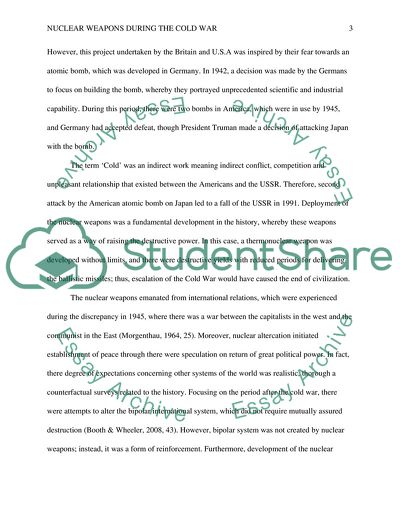Cite this document
(Nuclear Weapons during the Cold War Essay Example | Topics and Well Written Essays - 1500 words, n.d.)
Nuclear Weapons during the Cold War Essay Example | Topics and Well Written Essays - 1500 words. https://studentshare.org/history/1790934-did-nuclear-weapons-keep-the-peace-during-the-cold-war
Nuclear Weapons during the Cold War Essay Example | Topics and Well Written Essays - 1500 words. https://studentshare.org/history/1790934-did-nuclear-weapons-keep-the-peace-during-the-cold-war
(Nuclear Weapons During the Cold War Essay Example | Topics and Well Written Essays - 1500 Words)
Nuclear Weapons During the Cold War Essay Example | Topics and Well Written Essays - 1500 Words. https://studentshare.org/history/1790934-did-nuclear-weapons-keep-the-peace-during-the-cold-war.
Nuclear Weapons During the Cold War Essay Example | Topics and Well Written Essays - 1500 Words. https://studentshare.org/history/1790934-did-nuclear-weapons-keep-the-peace-during-the-cold-war.
“Nuclear Weapons During the Cold War Essay Example | Topics and Well Written Essays - 1500 Words”. https://studentshare.org/history/1790934-did-nuclear-weapons-keep-the-peace-during-the-cold-war.


